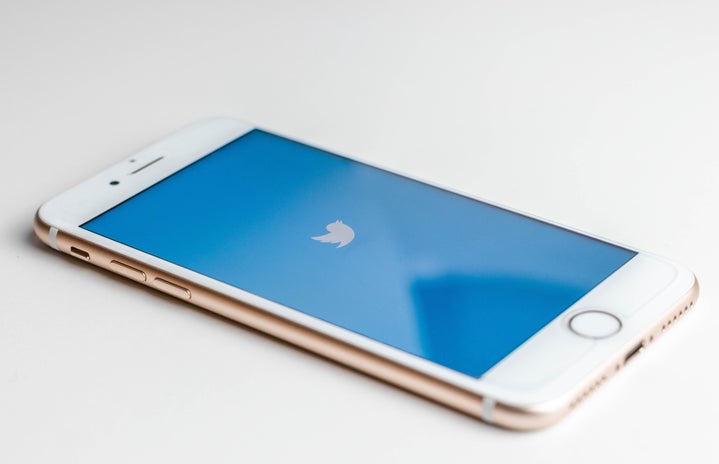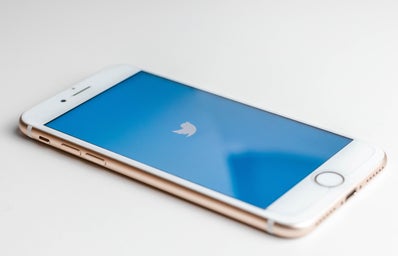This Sunday, actress Alyssa Milano used her voice and outreach to start a movement. In the wake of one of a long list of sexual harassment and assault-related news stories, victims of sexual assault banded together online, given a voice – for many, for the first time – through the prompt of Milano’s tweet.
The movement was not restricted to Twitter, nor was it restricted to women. Survivors of all genders banded together to share “me too” stories – or a lack thereof, some opting to simply share the two words alone – feeling rightfully compelled to make themselves heard.
As the movement began to rock the social media world from all sides, it seems as if no one’s timeline or news feed was left unaffected. The “magnitude” was expressed outright, and the notion of a “problem” seems a bleak understatement. The movement should be credited for the solace it has already provided for so many women and for the awareness it has brought to a devastating, long-established epidemic of sexual predators in society.
However, as a 20-year-old female college student observing this movement to which I, like so many other women, undoubtedly and regretfully owe a status update, I can’t help but recognize some flaws in its execution. While the sentiment and motivation is noble, I watched this development unfold through a digital sector I consider intrinsic to my lifestyle. While social media is anything but private, I had neglected to recognize how personal the virtual community I shared with my loved ones and acquaintances had become to me, until the “me too” movement entered like an unwelcome intruder.
At first unaware of the significance of “me too,” a quick Google search clarified its origins for me. Clicking back on my Facebook tab, I scrolled through my timeline, unnerved by what I saw. Initially assuming each friend I’d grown up with, went to high school with or now shared a university campus with had been a survivor of a significant physical assault, my heart broke as name after name, “me too” after “me too,” blurred together on my laptop screen.
My assumption may have been true; perhaps the first ones to speak out were those who had been waiting for their chance to come forward and speak out about their most personal struggles or resulting triumphs. As time unfolded, the density of “me too”s increased, and I quickly became aware of the reality that the severity of the assault may be arbitrary. Regardless of the nature of the incident, a “me too” is a “me too.” I wish I could have seen even one less.
It wasn’t necessarily the movement’s invasion of my personal space that constituted a problem – as regretfully ironic as that statement may seem. The problem was already there; its violation of personal space was its strength, its alarm, its impact. I felt it, and as unnerving as it was, I hoped others felt it, too.
For me, the problem was the resulting dismay, dejection, and stagnation. My brief empowerment and relation to these women subsided, and I was overcome with a quiet, subdued sense of grief. I ached for them. I felt powerless for them. “Me, too,” they said. Countless Facebook friends had already experienced this. Who was I to feel empowered when their status update said I was too late to do anything for them?
“This movement needed a trigger warning,” read the caption of the Snapchat I sent my best friends. The photo captured the myriad status updates on my Facebook timeline. Not only did this movement fuel my dejection, it consumed my thoughts and emotions. I thought of nothing else. I assume I was not alone in this reaction.
Alexis Benveniste, a writer for The New York Post and Teen Vogue, expressed her thoughts on the triggering aspect of “me too” in a Tweet, as well.
Equally as noble as Milano’s original Tweet, Benveniste’s post went viral. In lieu of a “me too,” countless women who may have felt uncomfortable speaking out personally, showed their support through a repost of her Tweet. While it may not have been an expected immediate reaction to Milano’s Tweet, Benveniste’s serves as a testament to how “me too” has fueled female empowerment from several varied interpretations of the campaign.
While I mentioned my initial dejection, I’m happy to report my experience in understanding the “me too” movement didn’t end with that sentiment. Yes, empowerment came, then went. I grappled with its absence for some time, but my thoughts unfolded as quickly as the Tweets and widespread posts have in the last two days.
I’ve resolved that the execution of the movement effectively justified its intent. We can now acknowledge the obscene pervasiveness of sexual assault and harassment in the lives of the women we know personally, and social media timelines were the most effective platform through which this point may have been expressed. However, I don’t feel as though my initial reactions and emotions of feeling as though I were too late or helpless are invalid or inappropriate. I feel this campaign has been limited in its expression and its call to action.
Perhaps we turn the movement on men. I can’t help but express my agreement with Benveniste: survivors don’t owe you a story. Survivors of sexual assault shouldn’t be the ones bearing the pressure to speak out.
I questioned the movement’s effectiveness, if, say, men across the globe publicly admitted to having contributed to a culture of sexism, sexual predation, or harassment. I quickly realized the complex nature of such actions and the ineffectiveness of asking those at fault to come clean of their crimes.
I found light in a new thought. Instead of having women express the pain of trauma they’d faced, perhaps we now ask men to share their support. While a “me too” from a woman in the wake of gendered assault or harassment is alarming and eye opening for many, a subsequent “me too” from a male voice that resolves to support these women and the future prevention and dissolution of this culture, is empowering:
A “me too” from a man who stood up for a friend when she was cat-called or teased in school because of the way she dressed. A “me too” from a man who walked a female friend home so she wouldn’t feel unsafe walking alone in the dark. A “me too” from a man who believes genders are varied and equal, and everyone deserves to be treated with respect.
In my reality, I speak out here, in the only way I ultimately know how. In the world I’ve described, however, I see a more positive future: I no longer feel dejected or subdued as I scroll through a hypothetical timeline of friends and acquaintances united for good. Fortunately, I believe this world exists in silence behind the “me too”s of the brave women who have already spoken out. It is in this world I am optimistic, and I believe men and women can equally share their support in this fight.


